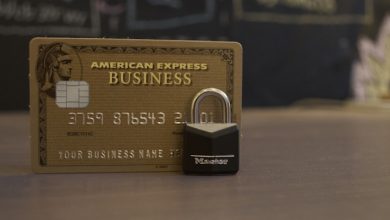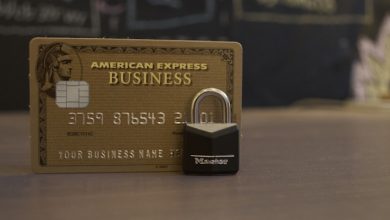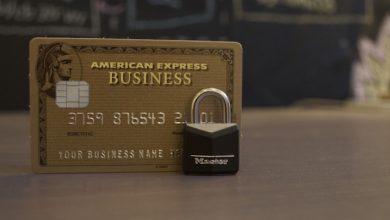How Paper Wallets Work and When to Use Them

- Understanding the basics of paper wallets
- The security benefits of using paper wallets
- Step-by-step guide on creating a paper wallet
- When to consider using a paper wallet for cryptocurrency storage
- Comparing paper wallets to hardware wallets and online wallets
- Tips for securely storing and accessing your paper wallet
Understanding the basics of paper wallets
For those new to the world of cryptocurrency, paper wallets can seem like a confusing concept. However, understanding the basics of paper wallets is essential for anyone looking to securely store their digital assets offline.
A paper wallet is a physical document that contains a public address for receiving cryptocurrency and a private key for accessing and managing that cryptocurrency. Unlike online wallets, which are stored on a computer or mobile device and are vulnerable to hacking, paper wallets provide an extra layer of security by keeping your keys offline.
To create a paper wallet, you can use a variety of online services or generate one yourself using a paper wallet generator. Once you have your paper wallet, you can transfer your cryptocurrency to the public address listed on the document. When you want to access your funds, you simply use the private key to import the wallet into a digital wallet.
It’s important to keep your paper wallet in a safe place, away from potential damage or theft. Some people choose to laminate their paper wallets or store them in a secure location, such as a safe deposit box. Additionally, you should never share your private key with anyone else, as this could lead to unauthorized access to your funds.
While paper wallets offer a secure way to store cryptocurrency offline, they may not be the best option for everyone. If you plan on making frequent transactions or need to access your funds quickly, an online or hardware wallet may be more convenient. However, for long-term storage and added security, paper wallets can be a valuable tool in your cryptocurrency arsenal.
The security benefits of using paper wallets
One of the main advantages of using paper wallets is the enhanced security they provide for storing cryptocurrency. Paper wallets are considered “cold storage,” meaning they are not connected to the internet, making them less vulnerable to hacking and cyber attacks. This isolation from online threats significantly reduces the risk of unauthorized access to your digital assets.
Furthermore, paper wallets allow you to have full control over your private keys, which are essential for accessing and managing your cryptocurrency holdings. By generating and printing your private keys offline, you can ensure that they are not exposed to potential online threats. This added layer of security gives you peace of mind knowing that your funds are safe and secure.
In addition to protecting your private keys from cyber threats, paper wallets also offer protection against hardware failures and malfunctions. Since paper wallets are physical documents that can be easily stored in a safe place, you do not have to worry about losing access to your funds due to technical issues with your electronic devices. This extra level of security ensures that you can always retrieve your cryptocurrency holdings when needed.
Step-by-step guide on creating a paper wallet
Creating a paper wallet is a simple process that can provide added security for your cryptocurrency holdings. Follow these steps to create your own paper wallet:
1. **Generate a new wallet address**: Start by choosing a reputable website or software that can generate a new wallet address for your chosen cryptocurrency. Make sure to use a secure and trustworthy source to avoid any potential risks.
2. **Disconnect from the internet**: For added security, it is recommended to create your paper wallet on a computer that is not connected to the internet. This will help prevent any unauthorized access to your newly generated wallet address.
3. **Print your wallet information**: Once you have generated your new wallet address, print out the public and private keys associated with it. Make sure to keep this information safe and secure, as anyone with access to these keys can potentially access your funds.
4. **Secure your paper wallet**: Store your printed wallet information in a secure location, such as a safe or lockbox. It is essential to keep this information safe from theft, damage, or loss to ensure the security of your cryptocurrency holdings.
5. **Transfer funds to your paper wallet**: Once your paper wallet is created and secured, you can transfer funds from your online wallet or exchange to your paper wallet address. This will allow you to store your cryptocurrency offline for added security.
By following these steps, you can create a paper wallet to securely store your cryptocurrency funds offline. Remember to keep your paper wallet information safe and secure to protect your assets from potential threats.
When to consider using a paper wallet for cryptocurrency storage
When considering using a paper wallet for storing your cryptocurrency, there are a few key factors to keep in mind. Paper wallets are known for their high level of security, as they are not susceptible to hacking or online attacks like digital wallets. This makes them an ideal option for those looking to securely store their cryptocurrency for the long term.
Another reason to consider using a paper wallet is if you want to have complete control over your private keys. By generating a paper wallet offline, you can ensure that your keys are not stored on any online device that could be vulnerable to security breaches. This added layer of security can give you peace of mind knowing that you are the only one with access to your funds.
Additionally, paper wallets are a great option for those who want to store their cryptocurrency offline in a physical form. This can be especially useful in case of a cyber attack or if you simply prefer having a tangible backup of your digital assets. By keeping your cryptocurrency in a paper wallet, you can easily access your funds at any time without relying on an internet connection.
Comparing paper wallets to hardware wallets and online wallets
When it comes to storing your cryptocurrency, there are a few different options to choose from depending on your needs and preferences. Paper wallets, hardware wallets, and online wallets each have their own advantages and disadvantages to consider.
Paper wallets are a physical form of storing your cryptocurrency keys. They are considered one of the most secure options as they are not connected to the internet, making them less vulnerable to hacking. However, they can be easily lost, damaged, or stolen if not kept in a secure location.
Hardware wallets, on the other hand, are small devices that store your cryptocurrency keys offline. They are considered more convenient than paper wallets as they are easier to use and can store a larger variety of cryptocurrencies. While they are generally considered secure, they can still be vulnerable to physical theft or damage.
Online wallets, also known as hot wallets, are digital wallets that store your cryptocurrency keys online. They are convenient and easy to access from anywhere with an internet connection. However, they are more vulnerable to hacking and theft compared to paper and hardware wallets.
Overall, the right choice between paper wallets, hardware wallets, and online wallets will depend on your individual needs and preferences. If security is your top priority and you are comfortable with the responsibility of keeping a physical item safe, a paper wallet may be the best option for you. If you value convenience and are willing to take on a slightly higher level of risk, an online wallet may be more suitable. Hardware wallets offer a balance between security and convenience, making them a popular choice for many cryptocurrency users.
Tips for securely storing and accessing your paper wallet
When it comes to securely storing and accessing your paper wallet, there are a few important tips to keep in mind to ensure the safety and accessibility of your funds.
- Choose a secure location: Store your paper wallet in a safe place, such as a fireproof safe or a secure deposit box.
- Make multiple copies: Consider making several copies of your paper wallet and storing them in different secure locations.
- Protect against physical damage: Laminate your paper wallet to protect it from water damage, tearing, or other physical harm.
- Keep it private: Do not share your paper wallet’s private key with anyone and store it in a place where it cannot be easily accessed by others.
- Regularly check on your paper wallet: Periodically check on the condition of your paper wallet to ensure it remains intact and readable.
By following these tips, you can securely store and access your paper wallet with peace of mind, knowing that your funds are safe and easily accessible when needed.



